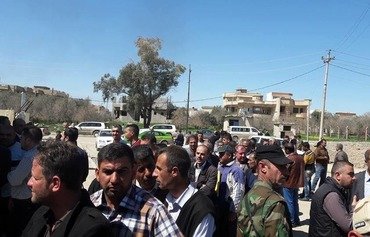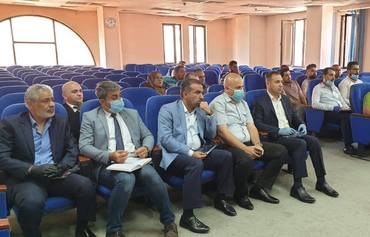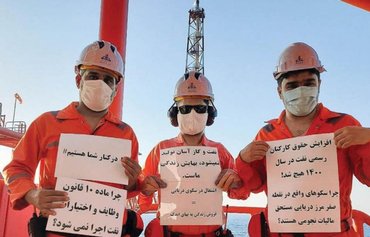The Iraqi government is conducting a security audit of all state employees living in areas liberated from the "Islamic State of Iraq and Syria" (ISIS).
In mid 2015, the Iraqi government suspended the salaries of state employees in areas under ISIS control.
State employees who were displaced continued to receive their salaries, however, as long as they reported for duty in the areas where they had fled.
At the time, a state committee was formed to disperse salaries to affected employees.
With a return to normal life in many areas, many state sector employees are now able to claim their salaries from affiliated state institutions and directorates.
The government is now requiring these employees to undergo a security check, as part of its efforts to cut off funding sources for terrorism and to ensure government funds are not making their way into the wrong hands.
Such a step is considered "standard" on the part of the government, and will enable it to ensure "everything is running smoothly", said Mudhar Mohammed Saleh, economic advisor to Iraqi Prime Minister Haider al-Abbadi.
"There were several cities that were under terrorist control, and we cannot know for sure what the position of [state] employees there is -- whether they are with the enemy or the Iraqi government," he told Diyaruna.
"For this reason, we think a security clearance for state employees is required at this stage, as we seek to stamp out the remnants of terrorism," he said.
The audit process includes cross-checking the names of government employees against a security database that contains the names of wanted individuals who were known to be involved with ISIS.
Saleh confirmed the government’s efforts to finalise this process so that salaries can be dispersed without delays.
"Everyone will get what is owed to them," he said.
Expedited process
During its December 19th session, the cabinet directed the national security agency to expedite the process of auditing state employees in the liberated areas so they can receive their salaries, a government statement said.
The auditing process underscores "the government’s commitment to eradicate the scourge of terrorism", said Sadiq al-Bahadli, who teaches finance and banking at al-Mustansiriya University.
"This step will help differentiate between those whose loyalty lies with the government and those who have colluded with ISIS or joined its ranks," he told Diyaruna. "The latter group has to be investigated to determine whether they helped the terrorists commit their crimes."
This step is an important way to "cut off sources of funding that are available to terrorists and contribute in one way or another towards their criminal activities", he said.
"This will help establish security throughout the country, particularly in the areas that have been rid of terrorism, as well as reinforce the rule of law," he added.
'A new era of stability'
According to al-Bahadli, the security audit is designed to "usher in a new era of stability at the economic, social and political levels and engender trust and goodwill between citizens and official institutions".
Iraqi MP Nayef al-Shimmari, who represents Ninawa province in parliament, told Diyaruna the security audit is an important part of national efforts to stabilise the security situation and protect the country from terrorist threats.
However, he said, all available measures must be taken to prevent a delay in monthly salaries being paid on time.
"State sector employees in Ninawa and other liberated provinces have suffered significantly as a result of their salaries being suspended," he said.
"We should not drag our feet when it comes to the audit process to ensure salaries reach their recipients without delays or hurdles."

![The Iraqi government distributes salaries to ministry of health employees in Anbar province in this photo posted in January 2016. The government is asking all state employees in areas liberated from the 'Islamic State of Iraq and Syria' to undergo a security audit. [Photo from the Anbar Health Directorate Facebook page]](/cnmi_di/images/2018/01/01/10888-employees-iraq-mosul-600_384.jpg)






